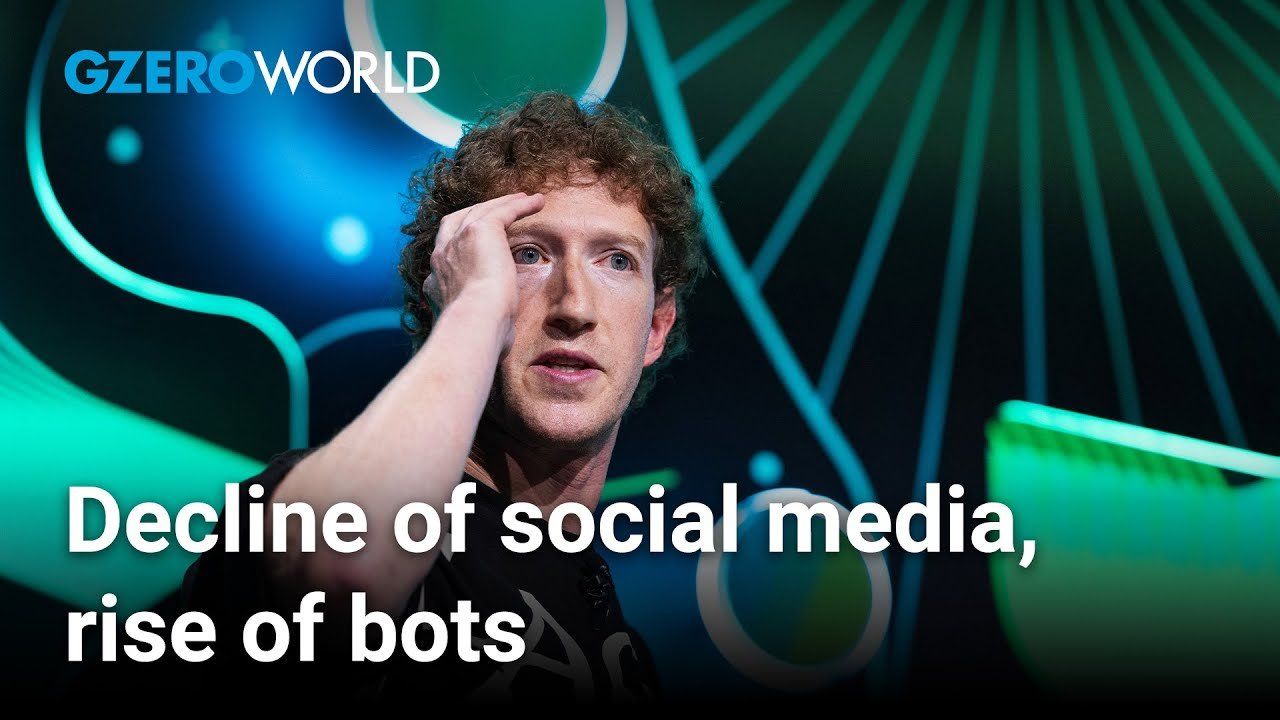
- YouTube
The last five years have brought big changes to social media and the online experience, but are users better off for it? Chatbots and AI-generated content proliferate in social feeds. Twitter/X and, just recently, Meta have stopped fact-checking content to prioritize "free speech." As platforms like BlueSky emerge, toxicity and arguments might decrease, but it also leads to a more fragmented and atomized society, with no 'town square' to debate big issues. On GZERO World, Atlantic CEO Nicholas Thompson joins Ian Bremmer to discuss the seismic shifts in the social media landscape and the implications of AI-driven communication. Thompson says social media is less important than five years ago, and we no longer have shared space for meaningful political and cultural exchange. Meta's recent experiment with AI-generated profiles has Thompson worried about a future where humans interact more with bots than real people. How do we balance technological progress with preserving authentic human connections?
“It’s a dystopian future where you no longer know if you’re talking to a person or you’re talking to a bot, and the bot knows more about you than you know about yourself,” Thompson warns, “The bot does not love you but does want your money, and knows to communicate so you feel love, give money, and the bot gets what it wants. That’s the worst future.”
Watch full episode: Big Tech under Trump 2.0
GZERO World with Ian Bremmer, the award-winning weekly global affairs series, airs nationwide on US public television stations (check local listings).
New digital episodes of GZERO World are released every Monday on YouTube. Don't miss an episode: subscribe to GZERO's YouTube channel and turn on notifications (🔔).